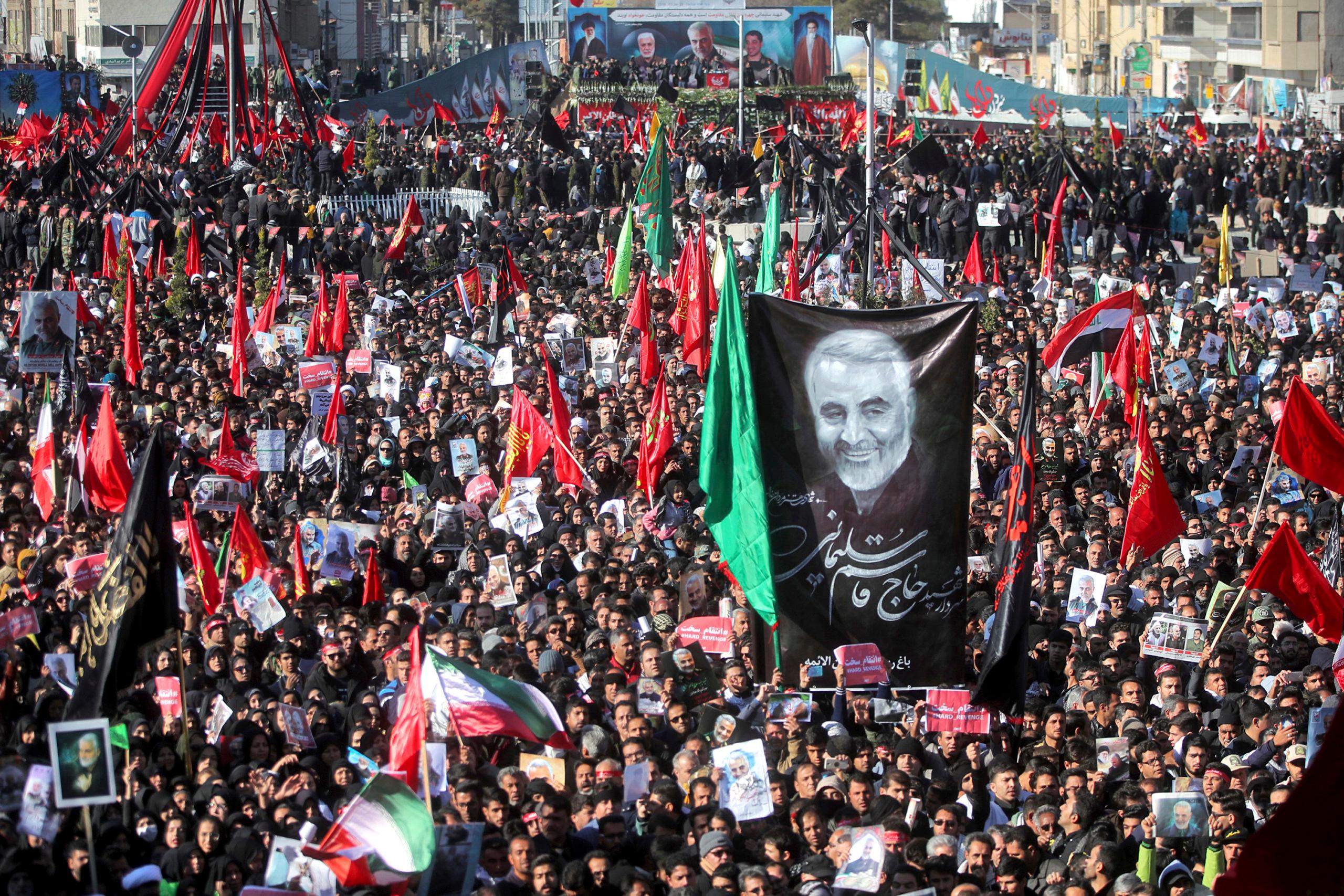
As tensions with Iran heat up after last week’s killing of General Qassem Soleimani by U.S. drones, the ripple effects are being felt worldwide, including Colorado.
Two local experts spoke to Colorado Matters about the far-reaching impacts of Soleimani’s death and what could come next.
Nader Hashemi directs the Center for Middle East Studies at the University of Denver, and Karl Schneider with the Colorado Springs World Affairs Council has more than 20 years of military experience and fought against Soleimani’s forces, the Quds, overseas.
Hashemi believes the Trump-ordered strike against Soleimani will propel the U.S. into a new war, while Schneider insists the move was "a long time coming" and only advances ongoing conflict in the Middle East.
Interview Highlights
On what General Soleimani’s death means for Iran and the broader Middle East:
Hashemi: “The regime in Iran is cynically manipulating nationalism and anti-imperialism to shift attention away from the demands for democracy, which were the focus of Iranian politics just a couple of months ago where nationwide protest really rocked the regime. And so what we're seeing effectively in Iran today is the very catastrophic consequences of Donald Trump's misguided and chaotic foreign policy actually bolstering the regime in Iran, undermining the work of democratic activists and civil society activists, and allowing the Islamic Republic to shore up its sagging legitimacy.”
Schneider: “You know, at the tactical and operational level, it was a long time coming. He was leading his forces and militias against the U.S. and what we're trying to do in stabilizing Iraq at the strategic level, I would say that this certainly opens up a Pandora's box. You know, whether or not it was a sound decision — strategically only time will bear that out — it certainly sends a message. Donald Trump is certainly sending a message that should have been sent decades ago.
In a peaceful environment, I think that his death will be a catalyst for change. And I would suggest that, maybe in a few months, a deeper change within Iran as the democracy advocates kind of come out of the woodwork again.”
On how this conflict could be felt in Colorado:
Hashemi: “We're on the precipice of another Middle Eastern war that looks very similar to the lead up to the Iraq war in 2003. Donald Trump is sending troops to the Middle East. There's roughly 70,000 American troops there. If this goes forward, the possibility of Coloradans fighting in that war is very serious. There's also the bigger problem here, that no one has really talked about, that unleashing another war on an already broken and fragile Middle East poses the risk of increasing the levels and the extent of radical extremism.
Up until now, radical extremism in the Middle East has been largely a Sunni Muslim phenomenon. If Donald Trump continues down this destructive path, he runs the risk of unleashing a new form of religious extremism. This time coming out of the Shia Muslim community, which will be catastrophic for everyone in the world, including the people of Colorado.”
Schneider: “We've been at war for a long time, and if hostilities and conflict continues, it will just continue to be a grind for our military personnel. We have many military bases here, a lot of Army, Air Force elements and so on.
I would certainly not rest all of the conflict today on the shoulders of Donald Trump. Donald Trump has inherited a long history — over 40 years since we've had any relations with Iran — a long history of missteps, bad policy and trying to fix the Middle East, which I don't think is possible from an outside perspective.”
On how the remnants of the Iran Nuclear Deal played into the unfolding events:
Hashemi: “Donald Trump's fateful decision in May of 2018 to pull out of the Iran nuclear agreement — that I'm pretty sure he did not read — and to put crippling sanctions on Iran, were the key events that created a path dependency that has produced the developments that we're seeing that is broadest to the precipice of war. You cannot objectively understand why we were having this conversation today unless you trace it back to that fateful decision.”
Schneider: “I don't think that this gave them the reason to go ahead and publicly pull out of it. I'm not privy to all the intelligence operations that are ongoing, monitoring their adherence to the nuclear non-proliferation deal. But I would suggest to you that they have other operations ongoing that they weren't necessarily a hundred percent compliant with that deal.”
Answers have been edited and condensed for clarity.








